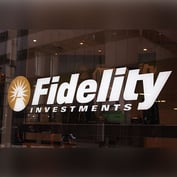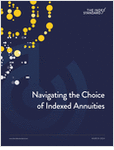What You Need to Know
- Advisors are allocating 62% of client assets to actively managed investments, 34% to passive strategies and 4% to cash.
- Most respondents said there are skilled active equity and fixed income managers who consistently outperform their benchmarks.
- Virtually all advisors will continue to use mutual funds in the next three years, and 65% anticipate using more ETFs.
As the recovery from the pandemic continues to unfold, financial advisors in a new survey from PGIM Investments report that they are allocating 62% of client assets to actively managed investments, 34% to passive strategies and 4% to cash. They expect these proportions to remain nearly the same over the next three years.
The survey found that advisors prefer active management to meet nearly all investment objectives, including:
- Accessing emerging market opportunities: 80%.
- Protecting against market declines: 79%.
- Providing risk-adjusted returns: 70%.
- Generating reliable income: 70%.
Only in managing tax liability did a majority of advisors, 52%, prefer passive management.
“What we’ve found through both our research and our experience is that financial advisors continue to use a mix of both active and passive [strategies] but rely more heavily on actively managed solutions within client portfolios,” Stuart Parker, president and chief executive of PGIM Investments, said in a statement.
“The ability to generate alpha for clients, particularly during periods of market volatility, is critical.”
For advisors assessing active managers, performance counts. A vast majority of respondents said there are skilled active equity and fixed income managers who consistently outperform their benchmarks. More than 80% said fee reductions make active managers more attractive than they once were.
Escalent conducted the survey between Jan. 27 and Feb. 19 among 509 U.S. financial professionals who sell mutual funds, ETFs or target date funds. Participants had a current book of business, were between 28 and 65, had a Series 6 or 7 professional license and at least three years’ experience as a licensed investment professional, and had firm assets under management of at least $25 million.









 September 08, 2021 at 04:51 PM
September 08, 2021 at 04:51 PM











